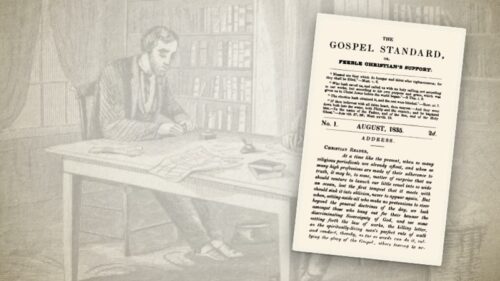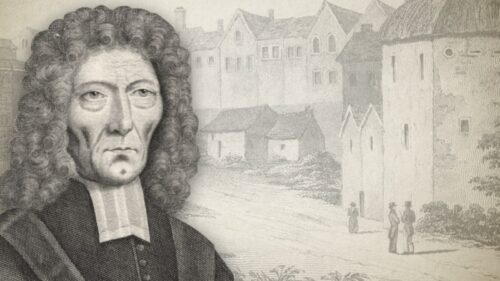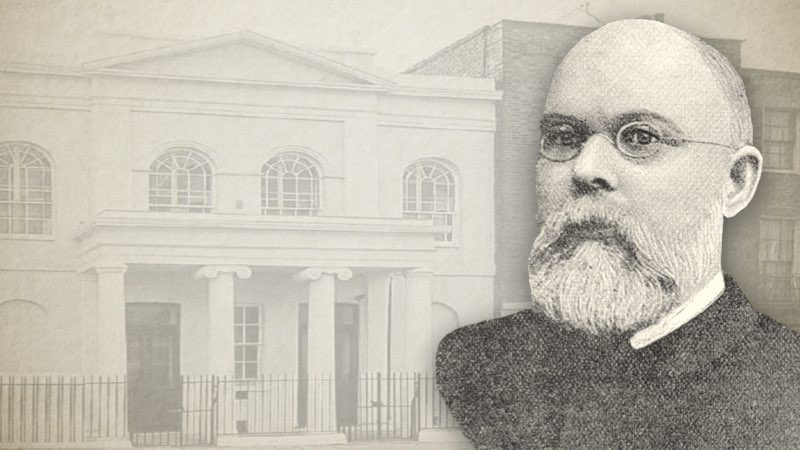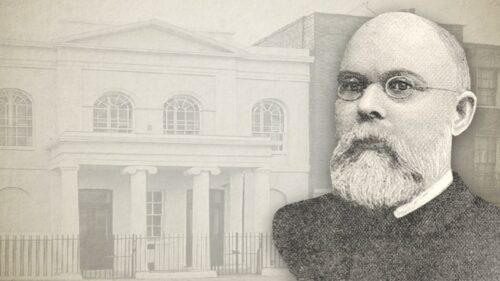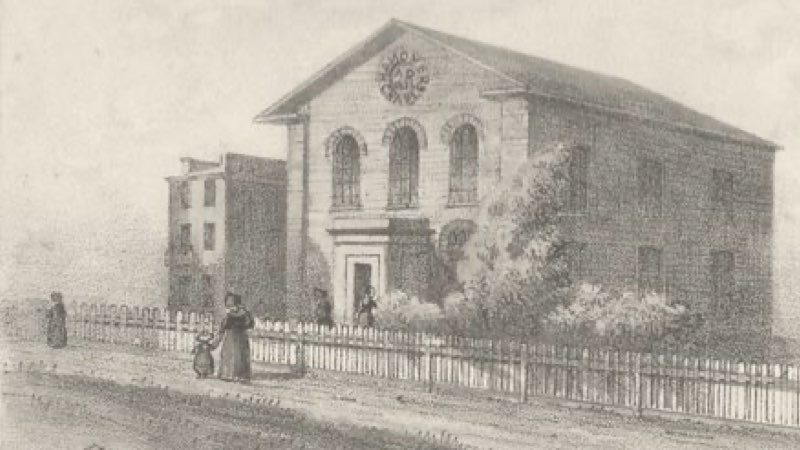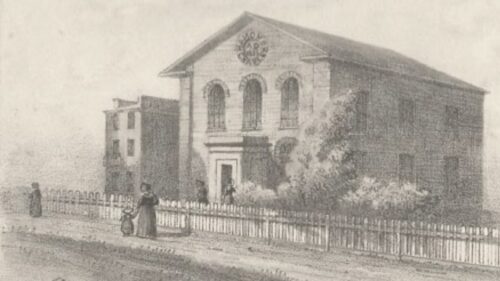-
A Complete And Certain Salvation
“The Lord God will help Me, therefore shall I not be confounded; therefore have I set My face like a flint, and I know that I shall not be ashamed.”—Isaiah 50:7 These surely, brethren, are not the words of the prophet Isaiah concerning himself; for, if we look at the context, we find the work of the Lord Jesus set before us in such words as these: “The Lord God hath opened mine ear, and I was not rebellious, neither turned away back. I gave my back to the smiters, and my cheeks to them that plucked off the hair: I hid not my face from shame and spitting.” I need scarcely tell you of whom the prophet spake in these words. We have in…
-
1891 Inaugural Address To The Metropolitan Association Of Strict Baptist Churches
Inaugural Address To The Churches, Delivered At The Annual Meeting Of The Metropolitan Association Of Strict Baptist Churches, March 10th, 1891, By The President, Mr. W. K. Squirrell, Pastor Of Hill Street, Dorset Square, Marylebone. “Go in this thy might.”—Judges 6:14 Dear Brethren,—next to my call by grace, I feel it is my highest privilege to belong to the Strict and Particular Baptist Denomination; a denomination that, amidst all the tendency of the times towards indefiniteness, and the hollow cries of spurious charity, abides by the truth of God, and adheres to New Testament order of Church government. Thank God, dear brethren, we believe something, and that something is increasingly dear to us as our rule of faith and practice, "For the mouth of the…
-
The New Covenant
A covenant means a contract, compact, arrangement between two or more persons. As employed by God it denotes the methods and terms in which He deals with men. He brought Israel out of Egypt by His outstretched arm, and entered into a covenant with them at Sinai. In our text He promises to enter into another arrangement with His people of a different nature to that made at Sinai, which they had broken. An understanding of this covenant, and an interest in it, are matters of paramount importance. It is denominated “a new covenant.” This refers to the date of its publication, otherwise it existed before the other covenant. As Kent sings:— " This cov'nant stood ere time began, That God with men might dwell;…
-
Study 8: Three Groups, Three Covenants, Three Laws
This study explores the distinctions between three major groups, covenants and laws recorded by Paul in his letter to the Romans. The Non-Elect are under the authority of the Covenant of Works, subject to the heart law; the Elect are under the authority of the Covenant of Grace, subject to the gospel law; the Jewish people as a nation were under the authority of the Mosaic Covenant, subject to its law. Failure to distinguish between these groups, covenants and laws is the cause of much confusion among professing Christians. This is particularly true with reference to the issues surrounding Hyper-Calvinism. Arminians and Moderate-Calvinists mistakenly believe the whole matter revolves around an excessive view of divine sovereignty, when it actually turns on the hinges of the…
-
The Nature And Design Of Gospel Invitations
The occasion of the following Sermon having been preached, and of its being now published to the world, is as follows. An association of Baptist Ministers in London, maintaining the distinguishing doctrines of the Gospel, are in the habit of meeting together once in three months, at each other's places of worship, for their mutual edification, and to promote union among their respective Churches; after which, a sermon is preached, on a previously appointed subject. Being one of that Association, I was at our meeting in June last, chosen the Lecturer for the next occasion, and the subject assigned me was, “The nature and design of the invitations of the Gospel." Accordingly on the 22nd of September, 1835, being through the kind providence of God,…
-
A Blow Struck At The Root Of Fullerism
The following letter originated in a conversation upon Mr. Fuller’s sentiment, viz. “faith the duty of the unconverted,” between the writer and the gentleman to whom it is addressed, in which this question was put, by the former, to the latter. Is the peculiar faith of God’s elect, or the faith of the operation of God, a duty of the moral law? It has long appeared to me, that this question is the grand hinge upon which the controversy between Mr. Fuller, and others, about faith, turns; and that, upon this ground, the Fullerian system must stand or fall; must be fully established, or eternally demolished. Some argue against Mr. Fuller’s notion, from man’s inability, concluding, that the faith in dispute cannot be the natural…





